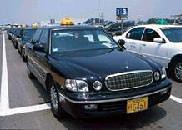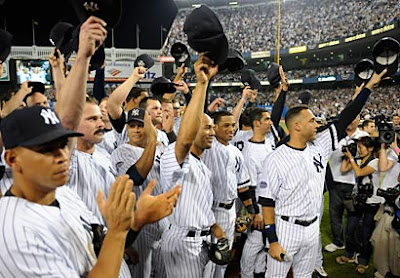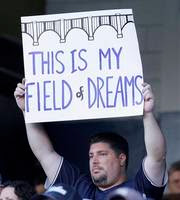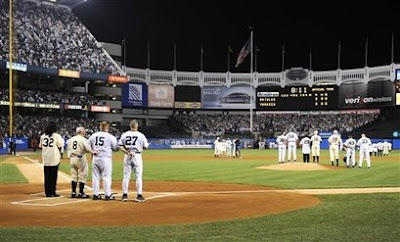Why Do GI’s Complain About Korea?
Introduction
Recently there were cooperative cross postings on Roboseyo’s blog as well as Ask A Korean on Why Expats Complain About Korea? The cross postings drew a lot of debate around the Korean blogosphere on why expats complain so much about living in the Land of the Morning Calm. Well in the same spirit The Korean and I thought it would make for interesting reading if I posted on why GI’s Complain About Korea while he posted on Why Koreans Complain About GI’s. Hopefully everyone will find these two postings to be interesting and at least thought provoking reading on why each side complains about the other.
Below is a list of reasons why GI’s complain about Korea in no particular order. I’m sure I probably missed a few so readers feel free to add to the reasons Why GI’s Complain About Korea in the comments section below.
Unaccompanied Tours – There are probably fewer things that upset people stationed in Korea then having to go to Korea without their families. This complaint is getting worse because of the number of people serving a year or more in a conflict zone and then coming back to the US to just receive orders to go to Korea for another year away from their families. I had an E-6 who deployed to Afghanistan with the 101st Airborne and then came back to the US for a few months to just be deployed again with the 101st for operation in Iraq when Operation Iraqi Freedom began. He spent a year in Iraq and then came back to the US to come down on orders to Korea. Needless to say he wanted out of the Army because his wife with three kids was about to divorce him. He ended up eating his way out of the Army and I can’t say I blame him.
There are plenty of more people in Korea in the same situation. In response more and more soldiers are bringing their families to Korea in a non-command sponsored status which means they have to pay to fly their families to Korea and house them here on their own. Think about it if the average servicemember has a wife and two kids that means he would have to buy three airplanes tickets to Korea and then three more to fly them back. That is probably at least about $6,000 in airplane tickets the servicemember is paying for. Then think the servicemember would then have to pay for some furniture and other items for whatever apartment he is living in since he couldn’t ship any of his household goods to Korea. That is even more money out of his pocket. Then he would have to pay to send his kids to a private foreign high school since they are not authorized to use any of the USFK schools. These non-command sponsored servicemembers are taking a huge financial hit by bringing their families to Korea. To make matters worse many of these soldiers live in cheap apartments in the ville which exposes their families to all the unpleasantness of the ville culture.
There are plenty of other issues non-command sponsored family members face with medical and dental for example and all these issues pile up to cause a major reason why servicemembers complain about being stationed in Korea.
Living Conditions – This is actually something that is improving every year but just a couple of years ago there were still USFK soldiers living in quonset huts. I don’t know of any soldiers living in quonset huts now (if anyone knows any then feel free to comment) which is a big accomplishment but nevertheless there are still units that have soldiers living in conditions that are less then what they would expect if stationed in a stateside unit.

Likewise as mentioned before families that are non-command sponsored find themselves in cheap off post apartments in the ville that are sub-standard to what they would expect to live in back in the states. Even families that are command sponsored find themselves in Yongsan for example living in the Hanam Apartments which I have often heard referred to as “The Ghetto”. This is a decreasing reason why soldiers complain about being stationed in Korea, but nevertheless still a reason.
Shady Landlords – Finding an apartment in Korea for those both command and non-command sponsored often means dealing with shady land landlords and corrupt rental agencies. Landlords in Korea are infamous for ripping off GI’s of their deposit money because they delay giving the money back to the servicemembers because they know the servicemember has a Permanent Change of Station date of when they must fly out of Korea and thus prevents them from taking any legal action against the landlord.
These shady landlords are also known to run secret power lines from the servicemember’s apartment to their apartment in order to make the servicemember pay for that person’s electric bill among a host of other shady practices. GI’s living off post being ripped off by these people is just another reason why GI’s complain about Korea.
Taxi Drivers – There are few things more annoying then dealing with the off post taxi cab drivers that are out to rip GI’s off. Commonly the cab drivers do not run the meter and then charge soldiers three to four times the amount the meter would read. The prices even go up higher the closer to curfew the soldiers trying to find a cab find themselves.
These cab drivers even try other shady tactics in order to fleece money out of soldiers. I was in a cab late at night heading back to my camp after pulling Courtesy Patrol at Stanleyville when the cab driver stopped in the middle of nowhere and then demanded I pay more money or get out of the cab. I told him no way and wrote down his contact information from the taxi’s panel. He was a bit surprised and was trying to push me out of the cab but I still got his details. I called my wife and she picked me up and the next day she called the taxi company and complained and the cab driver was forced to give me an apology over the phone later on.

There are plenty of other ways cab drivers try to rip off GI’s but I should also state that this complaint does not represent all cab drivers in Korea. This complaint refers to cab drivers around the GI villes especially Uijongbu and Dongducheon. I have taken taxis plenty of times in Seoul and other areas and never had these issues. However the constant harassment and shadiness from the cab drivers in the soldier ville areas is definitely something that causes soldiers to complain about Korea.
The Ville – The Ville is mixed bag because there are plenty of soldiers that love the Ville because of its sleaziness while just as many others can’t stand it for the same reasons. I fail to see the fun in paying $20 for a drink for a scantily clad juicy girl to talk to you for 10 minutes if that. However, plenty of younger guys enjoy wasting their money on this but there are plenty of other who do not and wish there were better entertainment options in the villes.

Also for us servicemembers who have served in Korea for a long time we know the shady things the people in the ville pull off. For example I would never by a non-bottled drink in the ville because of the fact that many of the club owners recycle ice and left over drinks to give to other customers. Even with bottled beer the club owners buy through the blackmarket beer that has reached its expiration date to sell to GI’s in the ville.
I could go on and on about the shady things that goes on in the ville but I think everyone gets the point. The shady villes with their shady taxi drivers is the one place in Korea where the majority of soldiers spend the most of their time so it is no wonder why soldiers would have negative perception of Korea if the ville is what they mostly see. Even for many of the guys that initially like the ville life, by the end of their tours even they usually tire of it. I know the ville is not real Korea but to many soldiers it is and is another reason why GI’s complain about Korea.
The Curfew – There are probably fewer topics discussed more then the USFK curfew policy. Everyone has an opinion on this to include the new USFK commander who issued his own change to the curfew policy. You can see what I think the curfew policy should be by reading here.
The prior curfew policy was initially established after 9/11 supposedly for force protection reasons. Everyone knew this wasn’t the case and the real reason was to keep soldiers away from Koreans to reduce incidents. As much as I like the former USFK commander General Bell, he even went further then the force protection reasons to say that the curfew was to make sure that soldiers got enough sleep at night so they are ready to fight the North Koreans the next day. This is all rubbish and insult to the intelligence of most servicemembers.
Since General Sharpe took command of USFK and changed the curfew policy he admitted the curfew was a punishment on all the soldiers for the actions of a few which confirmed the curfew wasn’t in place for any force protection reasons or to make sure soldiers got a good nights rest in preparation to fight the North Korean invasion the next day. Currently the curfew on weekends is from 3AM to 5AM with the 12PM curfew in place on work days. With only a two hour curfew you might as well as just do away with the curfew all together.
When incidents start happening again because they will; it’s a statistical certainty, the curfew will probably be changed again and only feed a whole new round of complaining about being stationed in Korea.
Cannot Drive – Being able to legally drive a civilian vehicle is something the vast majority of USFK servicemembers are not allowed to do. With most people in the rank and file this is not a big complaint since they all mostly live on post without their families. However for married soldiers that live off post this is an issue. I know plenty of soldiers who moved their non-command sponsored families to Korea on their own dime and live a good distance from where they work and have to walk or ride a bicycle every morning. This is made worse when you have to walk the long distance in the rain to get to work. I also know of command sponsored families who are lower ranking and cannot drive who face the same problem. Keep in mind it is not just the soldiers that have to walk but their families as well if their spouse needs to go to the PX or commissary.
The new USFK commander General Sharpe recently made a change to the driving policy like he did with the curfew policy in order to address these issues. Now soldiers can put in an application to get a driver’s license and own a car that needs to be signed by the first O-5 in their chain of command. This is a good change for the people who have to walk a good distance from where they live to get on post. The new policy also allows anyone to get a license or own a car or rent a car if approved by their first O-5. However, how many O-5’s are going to allow Private Tentpeg or Sergeant Windbag to own their own personal car? Probably none.
There will probably be a few commanders who allow soldiers to rent a car over a four day weekend for example but after a few soldiers get hit with DUI’s which will eventually happen because they are already happening now, how many of these O-5’s do you think will ever sign off on a private or lower ranking sergeant ever renting a car again? Not many, which will give GI’s just another reason to complain about being stationed in Korea.
Crazy Drivers – I think this goes without saying because anyone that has driven a vehicle in Korea or just observed driving practices from sitting on a bus for example should know full well how crazy Korean drivers can be. This is for a variety of reasons and mainly because of the incompetence of the police force which is unwilling to ticket people for breaking driving laws.
However, having to drive large military vehicles through this traffic is extremely stressful especially when you know if an accident happens it will be blamed on you no matter who is at fault, which just adds another reason why GI’s complain about Korea.
Koreans are Rude – This is something that has already been talked to death here on the ROK Drop but it is still something you can hear servicemembers complain about all the time. It only takes a new servicemember one trip to the shopping center and being elbowed by dozens of ajummas to get people complaining about how rude Koreans are.
If an Incident Happens It is Always the GI’s Fault – This is just pretty much a fact of life in Korea that if an incident happens between a Korean and a GI the assumption from the start is that the servicemember is at fault. A GI in Korea is truly guilty until he can prove themselves innocent. GI’s can be assaulted, kidnapped, and forced to make coerced statements on national television by Koreans and who gets charged with a crime? The GI’s of course.

Another soldier was convicted of attempted rape and the judge told him to appeal because the decision to convict him was so dubious. Incredibly on appeal the soldier’s sentence was thrown out after he had already served months in jail for a crime he didn’t commit.
One of my personal favorite incidents was when my battalion commander was driving to Camp Red Cloud and his driver cut in front of a tow truck to get in the proper turning lane. The tow truck driver was pissed that he got cut off and later on down the road he passed my battalion commander’s vehicle and then got in front of him. At the next stop light the tow truck driver put the vehicle in reverse and slammed the front of my battalion commander’s vehicle with the tow truck causing extensive damage. The tow truck driver then called the police to say he was rear ended. Despite the protests from my battalion commander, his driver was found liable for causing the accident. You can only imagine what my battalion commander thought of Koreans after that incident.
He is not alone and these incidents pile up to give GI’s even more reasons to complain about Korea
Lack of English in Korea – Not all things GI’s complain about are fair criticisms and this is one of them. Many servicemembers have been stationed in Europe before where English is widely spoken where in Korea it isn’t and makes every day interaction with Koreans very difficult. However, I don’t expect Koreans to speak English and I speak enough Korean to get by just fine. However, soldiers given orders to Korea for a year that are bitter to be here in the first place are not going to take the time to learn Korean.
This lack of being able to communicate thus keeps them in the ville area, which only further skews their views of Korea and Koreans in general.
Korea is Boring – This is something I hear all the time and it mainly comes from people who do nothing but go to the ville on weekends. This all goes back to my prior point about not being to communicate thus causing servicemembers to stay in the ville and do nothing else.
When servicemembers tell me this I quickly respond with a list of things for them do usually starting with the USO or MWR programs which have lots of tours going on. The first time I came to Korea eight years ago and knew nothing about the place I would go on just about every USO tour they had. Through those tours I learned enough about Korea to go out and do things on my own, which there is plenty to go see and do. However, this is not the case for many soldiers thus giving them something else to complain about.
Korea Smells – Here is something else I hear a lot guys complain about is how bad Korea smells and lot of this has to do with USFK facilities being located near rural areas with rice paddies that smell of manure. This is a dumb complaint but yet something you hear over and over again.
I have also heard many servicemembers complain about how Koreans smell like kimchi. Once again this one is dumb. However, I once overheard a soldier complain to a KATUSA before about how all the KATUSA stink when they come back from lunch of kimchi and it is hard to work because of the smell. The KATUSA calmly replied that it is hard for the KATUSA’s to work coming back from lunch because all the soldiers’ breath smells like hamburgers and how hard it was for them work because of the smell. It is all a matter of perspective, but still something people complain about.

Korea is Dirty – This is another one that I hear a lot and I think it is once again linked to the scummy villes that soldiers spend most of their time in. However some things such as people littering on the sidewalks as well leaving huge amounts of garbage in the country side after having a picnic is something that does not help this stereotype go away.
Policies that Treat GI’s Like Children – Servicemembers hate being treated like children, especially servicemembers of older ages. In USFK polices tend to be created to address issues with the 18-22 year old age group that causes the majority of issues yet the policies that are created for this age group are expanded to include everyone in the ranks. Believe me this causes a whole lot of complaining.
The Anti-US Protesters – These people are the subject of much scorn when the various anti-US issues flare up especially when these people are out protesting in front of the camps or assaulting servicemembers during training exercises. These idiots, though a small portion of the population, often cause servicemembers to complain how ungrateful Koreans are for everything the United States has done for them.

Conclusion – As you can see the reasons for why GI’s complain about Korea are various with some of the complaints being legitimate, others being more directed towards USFK policies rather then Koreans, some complaints are unwarranted, while others are just plain dumb.
A lot of these complaints I think will quickly go away if tours in Korea are normalized and servicemembers are allowed to bring their families to the peninsula combined with doing away with the over regulation of servicemembers’ lives in USFK. That is why I am a strong advocate of the USFK transformation plan which the Korean government and the anti-US groups are doing everything possible to delay and stop from happening. These actions only further give reason for servicemembers to complain about Korea.
However even if this transformation ever happens it won’t stop all the complaints. I’m sure there will be plenty of servicemembers who still complain because soldiers just like anyone else love to complain, but let’s hope it is only about stupid stuff and not over some of the legitimate complaints listed above.











